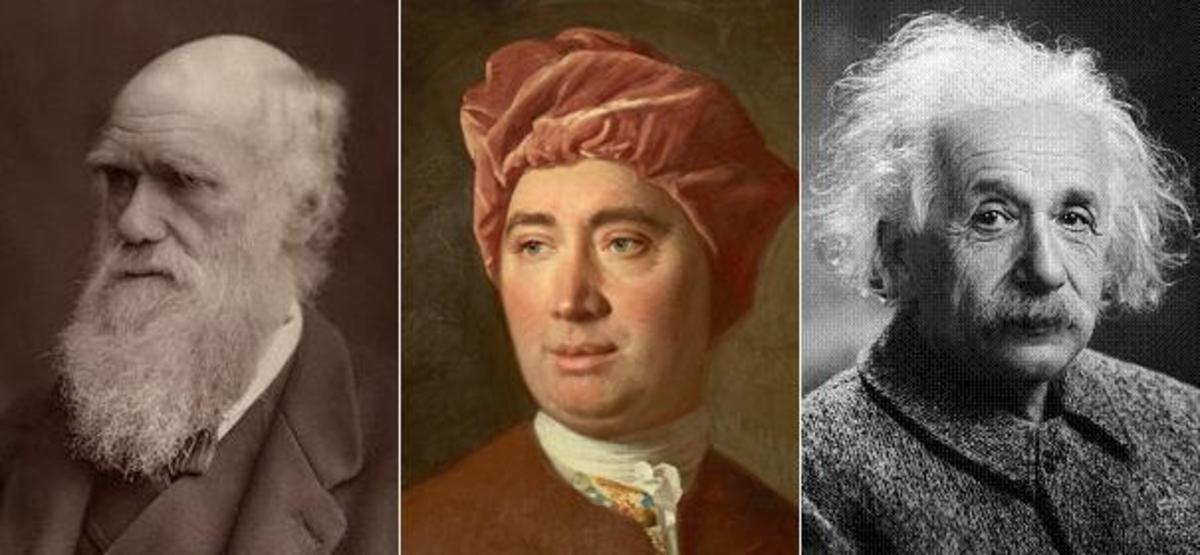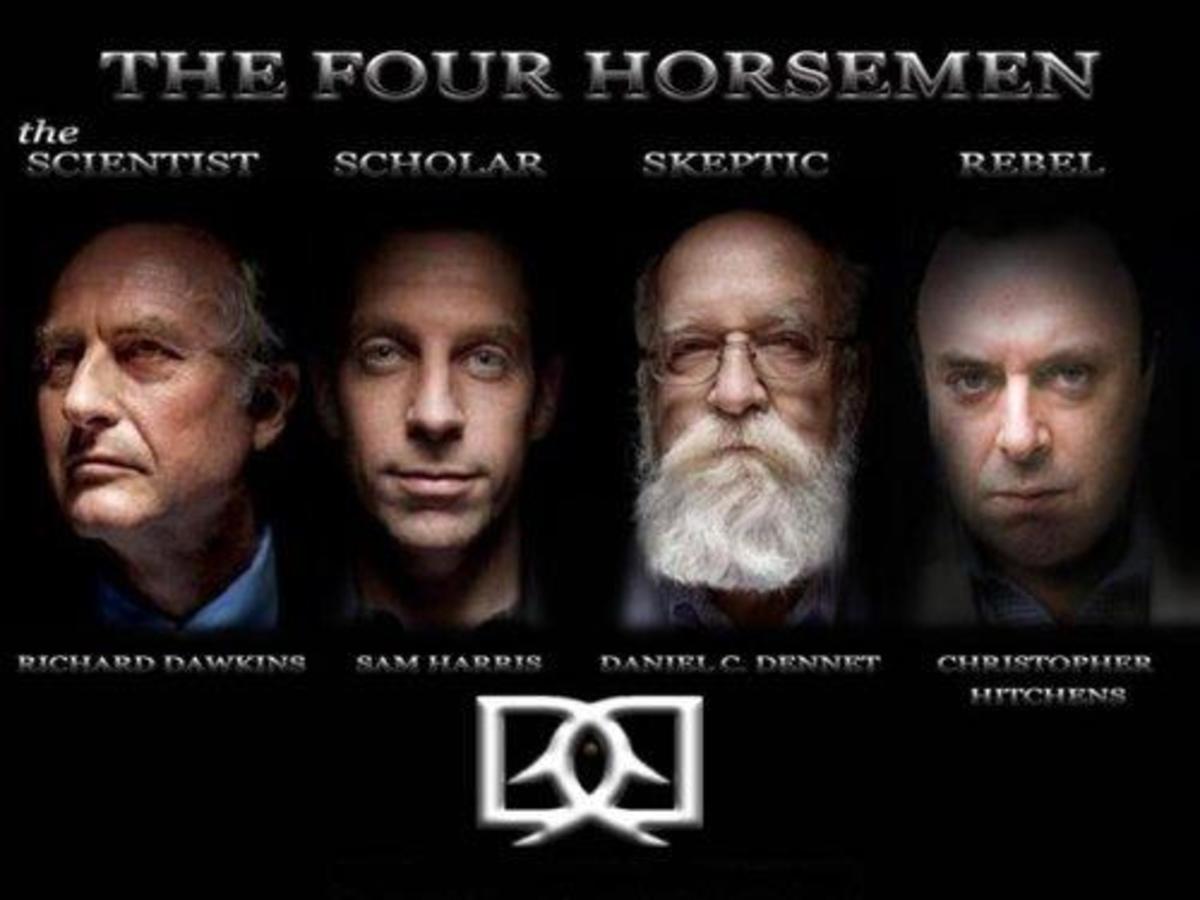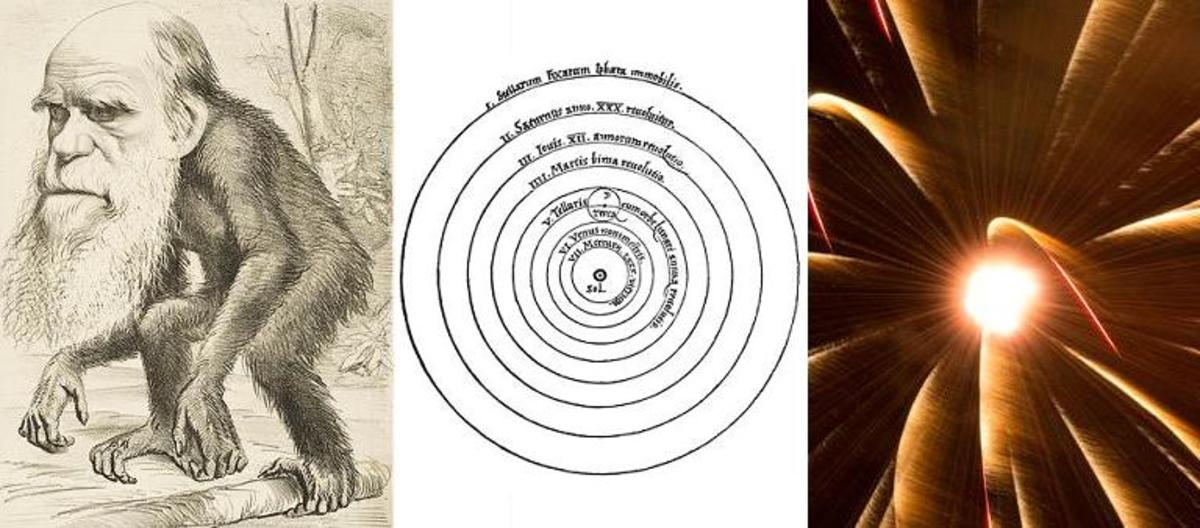In Defense of Atheism: The Legitimacy of not Believing in God

The Misunderstandings
Atheists are a widely misunderstood group of people. One of the greatest misunderstandings about people who deny the existence of the supernatural is that we are organized in direct defiance of religious belief. In fact, atheists are not unified in their non-belief in the same way people of the same religious beliefs are unified in their shared faith. Atheists are typically independent thinkers who have no interest in forming some sort of cult or church of atheism. Unlike various forms of theism, such as Christianity or Islam, atheism has no centralizing dogma to rally behind. Atheists simply live in a world without God and take it upon themselves as individuals to find meaning and fulfillment in their lives. There do exist atheist organizations that promote the atheist perspective and offer support for the atheist minority, but again, there is no unifying ideological doctrine behind which organized atheists stand. I will begin my defense of atheism by explaining in detail common misconceptions religious people sometimes have regarding atheists. I will title each following section on the topic of misunderstanding in the form of questions and statements religious people commonly direct at atheists.
Note: For the sake of simplicity, I may refer to God in a general sense encompassing all monotheistic religious deities. Also, to clarify, atheists of course do not believe in the existence of a multiplicity of pagan deities either. Again, I largely limit my reference to the supernatural to the monotheistic God for the sake of simplicity.
How can you be moral if you don't believe in God or the Bible?
The answer to this is quite simple. Psycho-evolutionary theorists have determined that altruism is a trait which increases the chances of survival. Therefore, a sense of morality is likely to have been carefully shaped by natural selection throughout the course of human evolution. I will return in detail to the topic of evolution by natural selection further down. For the majority of human history, we lived in small nomadic groups. This was also true of the earlier primates from which we evolved. As such, until fairly recently, people were dependent on one another for survival. People who shared food, skill, work, etc. with other members of the group were more likely to form the bonds of trust necessary for peaceful cohabitation. Ancient humans would not have survived if the majority of them had not been altruistic and "kind" to one another to foster peaceful cohabitation. That is how evolution by natural selection works; if something increases the chances of survival, in this case altruism, then it is this trait that is passed on genetically to the next generation. Adversely, greediness and violence are traits which can have short-term gains, but in ancient nomadic groups, the long-term impact of the resulting social stratification and rejection resulted in a reduced chance of survival. Therefore, natural selection has painstakingly weeded out the bad people, and promoted the survival of the good. This is why most people are basically good, because being trustworthy and moral was, for the majority of human existence, crucial to survival. Of course, there are still people who make mistakes, have violent temperaments, and are greedy. Natural selection works in trends and tendencies; it does not necessarily result in a perfect product. Natural selection is not a perfect process, but it has thus far kept evil in the overwhelming minority.

Another way to approach this question is to consider the questionable morality of religious scripture, which frequently references limitations on our diets and sex lives which most people no longer take seriously. Of course the bible teaches such undeniable maxims as not to steal or murder, but it also teaches violence against women, racist sentiment, and even glorifies genocide. Religious fundamentalists who use religious scripture to counter the naturally shifting moral zeitgeist, which in the West is moving toward such modern moral goals as gender equality, pro-choice abortion, and LGBT legitimacy, prove that biblical morality should not be our only source of morals. On a final note, I sincerely hope that religious people do not seriously believe that fear of supernatural retribution is the only valid path to a moral existence.
Why do you hate God, what did he ever do to you?
There really is not much to say about this point, but I hear it so often, it is worth explaining. Atheists do not hate God because for them, he simply does not exist. Some religious people try to explain atheism as the result of a traumatic experience. In truth, most atheists who were otherwise raised in a religious household simply grow out of their religious beliefs due to a variety of factors. Some fail to understand the legitimacy of choosing one religion amongst a variety of world religion. Some simply believe there is not enough evidence to consider religion and spirituality a rational way of forming a worldview. The simple fact of the matter is that some people just do not see the legitimacy of religious faith.
If you don't believe in God, your life has no meaning
My primary issue with religious people who make this kind of statement is that they do not know what it is like to be an atheist, and therefore are in no position to make assumptions about an atheist's quality of life. Atheists, just as well as religious people, find meaning in art, career, friendship, love, etc. Atheists do not need to believe in an eternal, loving, omnipotent, omniscient deity to validate their life's meaning. In fact, atheists tend to take life more seriously and avoid wasting the precious little time that they have because they do not expect an afterlife.
What if you're wrong? What if you really are angering God?
There is not a single person alive to whom this question does not apply, in fact. It is not just atheists who may be wrong. You could also say that any given religious person may "be wrong" for having chosen the wrong religion. A Christian could ask a Muslim if he worries about angering God by following the wrong faith, just as a Muslim could ask the very same question of a Christian.
Your faith in atheism is no different than faith in religion
I hear this often when discussing atheism v. theism with someone who is religious, or even agnostic. Some people misinterpret anti-religious argumentation as a means of developing an atheistic dogma. It can not, however, be reversed in this way. I began this article by explaining in detail that atheism is nothing like any given religion. Atheism is not based on faith. Atheists think rationally about the verifiable historical and scientific information available to us and make decisions about the nature of the universe based on evidence. Becoming an atheist does not take a leap of faith of any kind. Disbelief in the supernatural is not a matter of believing in non-faith, rather a preference for incontrovertible evidence of the truth over the assumed truths of religious scripture.
Not Being Able to Prove the Non-Existence of God
Now that I have cleared up some common misunderstandings people have regarding atheists, I will cover some of the topics which are often used in a case against the legitimacy of atheism. Many agnostics who would otherwise classify as atheists prefer agnosticism because they admit they can not prove that God does not exist. Of course, the value of this logical argument for religious people is also apparent. However, this argument is predicated on the assumption that the possible existence of God is equally justifiable as the possibility of no God.

There is not a shred of evidence to prove the existence of the Invisible Pink Unicorn, the Flying Spaghetti Monster, or Russell's Teapot (which is theorized to currently orbit Mars), just as there is not a shred of evidence to prove the existence of God. Justifying belief in God based on the impossibility of disproving his existence is the same as justifying belief in the three items pictured above because their existence is also impossible to disprove. The "anything is possible" mentality is not a sound or rational basis for defining one's worldview.

What about Scripture?
Religious scripture does not prove the existence of God. If you are going to use the Bible, the Torah, or the Koran to justify the existence of a supernatural deity, it would be just as rational for you to consider texts on Greek mythology proof of the existence of Zeus, Poseidon, and Hades, or ancient Scandinavian runic depictions as proof of the existence of Odin, Thor, Loki, etc. Religious scripture should be subject to the same skeptical scrutiny as all historical documents. For example, although there exist Scandinavian historical documents suggesting a pre-columbian viking settlement in what is now North America, this could not be verified until archaeological excavation proved the existence of a viking settlement on L'Anse aux Meadows in Newfoundland.

Illusion of Intelligent Design
To be an atheist is to understand the scientific explanation for the world we live in. The scientific explanation for life as it exists on our planet is evolution by natural selection, as first theorized by Charles Darwin. Much of the resistance to the theory of evolution by natural selection is a result of the complete misunderstanding thereof. People seem to assume that if something is called a "theory", then it can not be definitively proven. This misunderstanding, however, is the result of scientific illiteracy. Scientific theories are based on evidence that can be observed and tested. The wealth of evidence to be found in genetics, the fossil record, the anatomy of living beings, etc. lends incontrovertible support for the validity of evolution by natural selection. Conversely, there is absolutely no evidence which supports the scriptural account of creation by intelligent design. Because visible changes caused by the process of natural selection take hundred of thousands of years to become apparent, understanding evolution takes a high degree of abstract thinking. For some people, it is much simpler to attribute the complexity of life as we know it to an intelligent designer. Within the creationist worldview, the world was created in order to allow life to flourish. However, evolution by natural selection works the other way around. Life has evolved over billions of years to be best suited for the environment in which we happen to live. This is what I mean by the "Illusion of Intelligent Design". Humans are much more well-equipped to conceptualize their present surroundings than they are to think abstractly billions of years into the past and to consider the processes that led to the present. It is for this reason that people are more susceptible to believing that our planet sustains us and that we are the way we are because God did it. Conceptualizing so far into the past as is necessary to understand evolution by natural selection is counter-intuitive to the way human psychology has evolved. The creation v. evolution debate is an integral part of the theism v. atheism debate. The main reason that atheists remain a minority is not because it is wrong not to believe in God, but because believing in God is more compatible with human psychology.
Conclusion
There is much more you can read on such topics as evolution by natural selection and the explanation for religious faith as outlined by evolutionary psychologists. I have covered some of the primary arguments in support of an atheistic worldview, as well as countered common misconceptions regarding atheists and atheism. I welcome your thoughts on the matter and will respond to all comments for or against the opinions expressed above.








